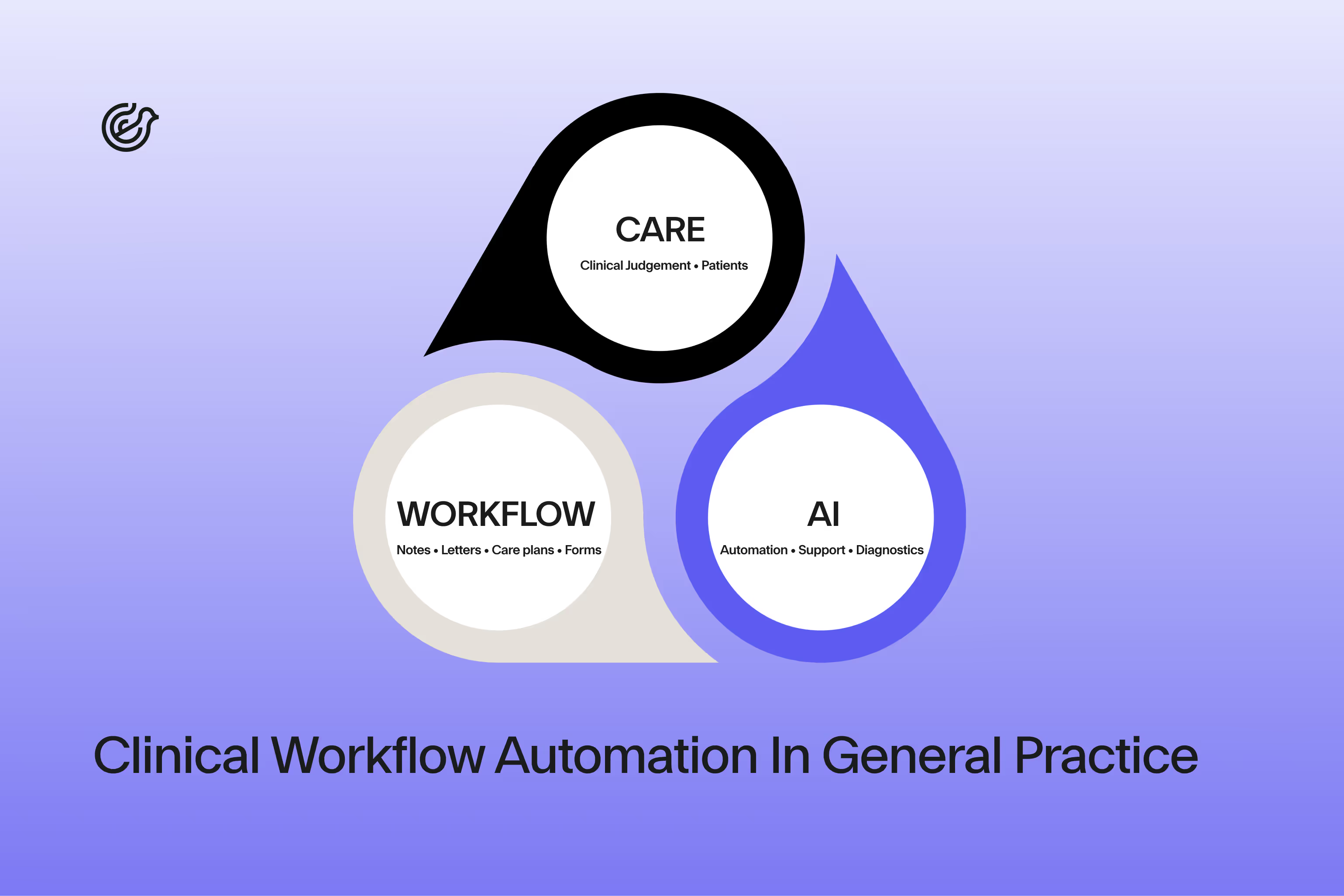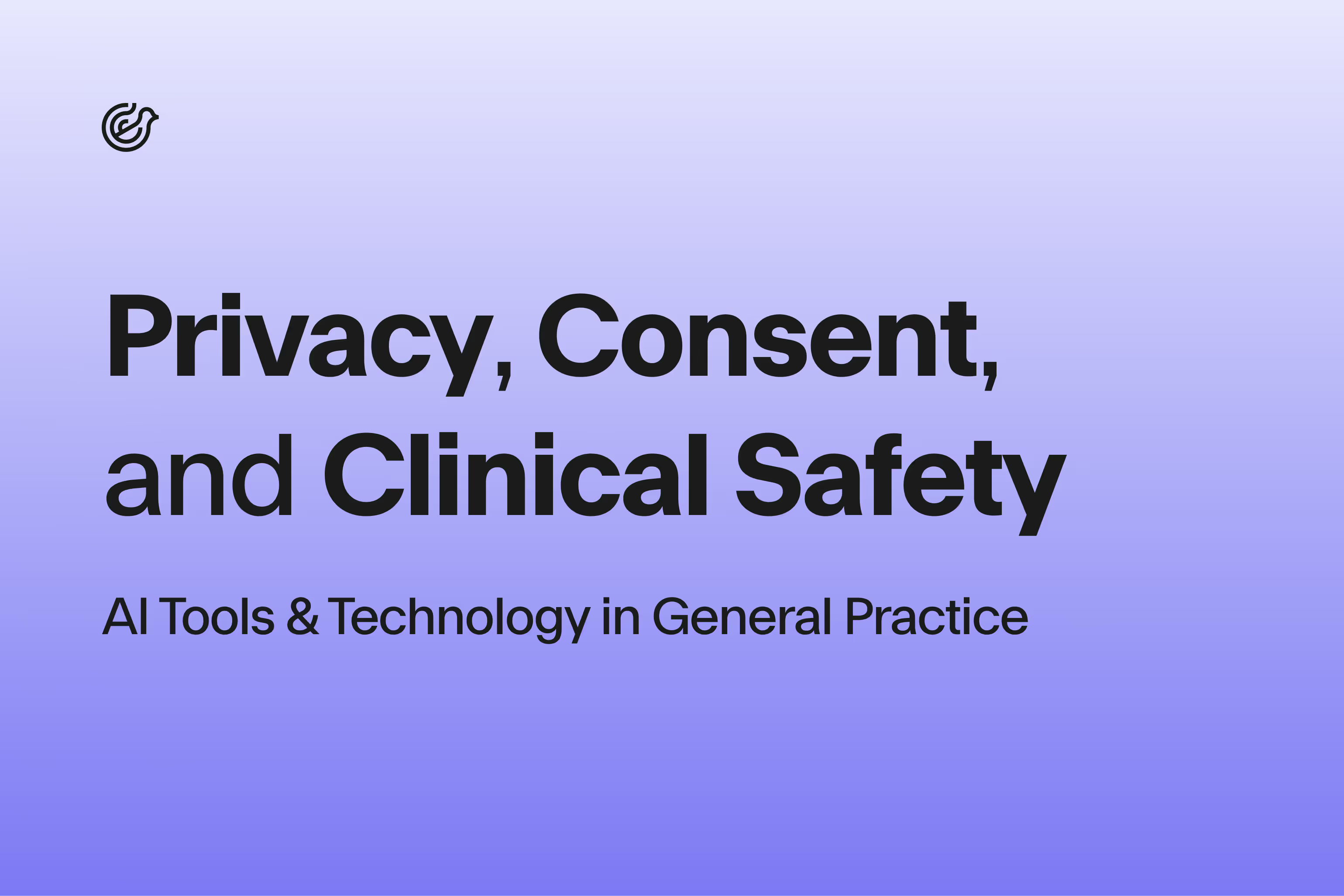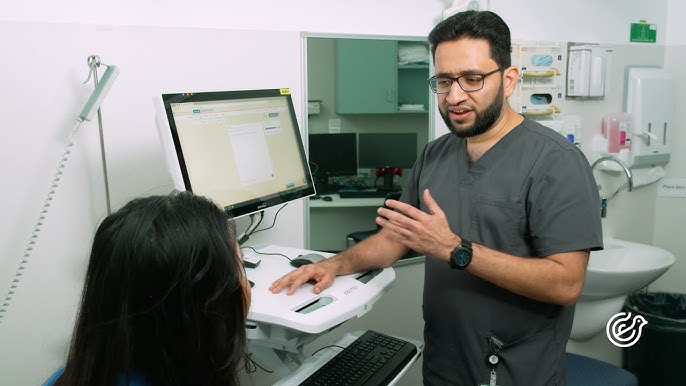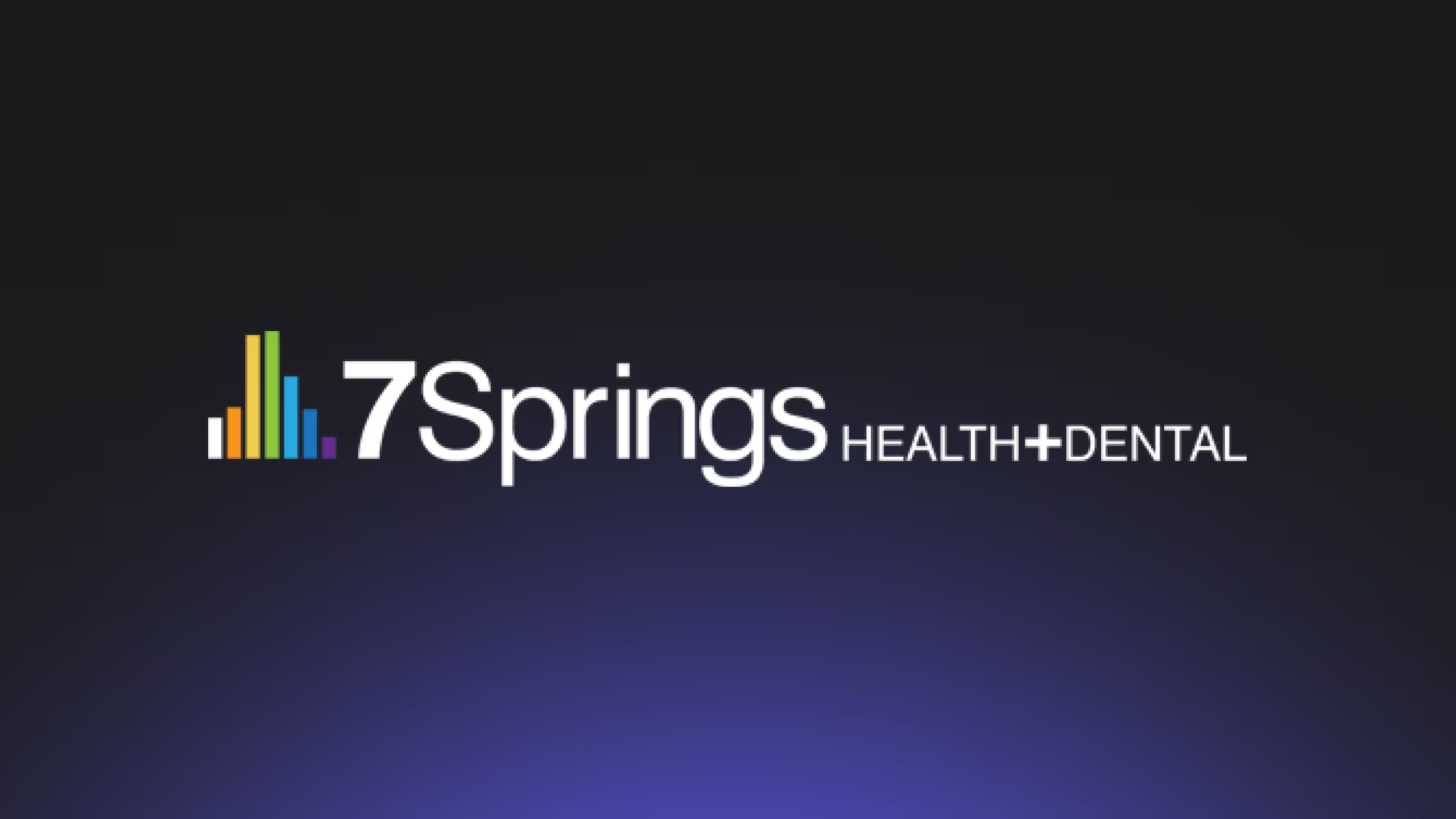Checklist: Evaluating AI Medical Scribe Solutions

AI medical scribes are changing how doctors handle paperwork. Here's what you need to know:
- AI scribes turn doctor-patient conversations into organized notes
- They can save doctors 2+ hours daily on documentation
- Accuracy rates reach 95-98%, beating human transcriptionists
When choosing an AI medical scribe, consider:
- Security and compliance (HIPAA)
- Accuracy and reliability
- Integration with existing systems
- User experience
- Privacy safeguards
- Technical support
- Cost and ROI
- Performance metrics
- Scalability
- Vendor reputation
Quick Comparison:
| Feature | Top AI Scribes | Human Scribes |
|---|---|---|
| Cost | $69-$2000/month | ~$46,000/year |
| Accuracy | 95-98% | 85-90% |
| Availability | 24/7 | Limited hours |
| Scalability | High | Limited |
| HIPAA Compliance | Yes (with proper setup) | Yes |
AI medical scribes can boost efficiency, improve patient care, and reduce doctor burnout. But choose carefully - not all solutions are equal.
Security and Compliance
Security and compliance are crucial when choosing an AI medical scribe. Here's what to focus on:
HIPAA Compliance

HIPAA protects patient data in the US. Check if the AI scribe:
- Follows privacy rules for patient info
- Has strong electronic data safeguards
- Has a clear data breach reporting plan
Key Point: The vendor MUST sign a Business Associate Agreement (BAA).
Data Protection Measures
Look for these security features:
| Feature | Purpose |
|---|---|
| Encryption | Protects stored and sent data |
| Access Controls | Limits data access |
| Audit Trails | Tracks data access |
| Regular Updates | Fixes security issues |
Healthcare data breaches increased 15% in early 2024 compared to 2023.
Pro Tip: Ask vendors about security certifications and third-party audits.
Protecting patient data builds trust. Patients need to know their info is safe with AI tools.
2. Accuracy and Reliability
AI medical scribes need to be spot-on for patient safety. Let's dive into two key areas:
2.1 Natural Language Processing
NLP is the secret sauce that helps AI scribes understand doctor lingo. Here's the scoop:
- It handles up to 80% of messy healthcare data
- More data = better accuracy over time
- It can boil down long notes into key points
Check this out: Sunoh.ai, an AI scribe, can document over 31,000 patient visits for the cost of one human scribe. Talk about efficiency!
2.2 Error Rates and Quality Checks
Catching mistakes is a big deal. Here's what to watch for:
| Feature | Why It Matters |
|---|---|
| Accuracy Rate | Shoot for 95-98% in speech-to-text |
| Quality Assurance | Regular checks to catch slip-ups |
| Human Oversight | Doctors need to review AI notes |
A study on AI scribes for asthma patients showed some impressive results:
| Metric | Score (95% CI) |
|---|---|
| Precision | 0.94 (0.90-0.96) |
| Recall | 0.96 (0.94-0.98) |
| F1 value | 0.95 (0.92-0.97) |
These numbers are pretty good, but not perfect. That's why you ALWAYS need a doctor to double-check.
Here's a pro tip: Look for AI scribes that use both tech and human review. It's like getting the best of both worlds - speedy AI and careful human checks.
Bottom line: The goal is to save time without messing up. A solid AI scribe should make a doctor's job easier, not create a headache with errors.
3. Integration and Compatibility
Your AI medical scribe needs to work well with your current setup. Here's what matters:
3.1 EHR System Integration
Getting your AI scribe to play nice with your Electronic Health Record (EHR) system is crucial:
- DeepScribe works with over 100 EHRs, including Epic and athenahealth
- For custom EHRs, look for API connections
- Nuance's DAX Copilot can write notes directly into Epic's mobile app
| Feature | Benefit |
|---|---|
| EHR Compatibility | Smooth workflow |
| API Support | Custom integrations |
| Direct Note Entry | Faster data transfer |
3.2 Customization Options
Your AI scribe should adapt to you, not the other way around:
- Look for specialty-specific templates
- DeepScribe's Customization Studio lets you adjust over 50 parts of your notes
- Some tools offer voice-activated macros for quick additions
"Customization options help create notes that match what the provider prefers or has historically written." - Dr. Dean Dalili, DeepScribe CMO
Real results:
- A cancer center boosted DeepScribe use to 76% by matching AI notes to their style
- Another group hit 100% adoption across 11 locations in 6 months, handling 72,000+ yearly visits
Choose an AI scribe that fits your workflow and EHR, and can handle your specific needs. The right tool will make your job easier.
4. User Experience and Interface
A top-notch AI medical scribe should make your life easier, not harder. Here's what to keep an eye out for:
4.1 Ease of Use for Doctors and Nurses
The best AI scribes slip into your workflow without a hitch:
- Need minimal training
- Have a clear, simple interface
- Offer voice commands for quick actions
| Feature | Benefit |
|---|---|
| Quick to Learn | Start using it fast |
| Simple Interface | Less headaches |
| Voice Control | Use it hands-free |
"With Abridge I'm able to interact with the patient. I don't have this clerical debt to deal with in the evening. It's been a win." - Dr. Gregory Ator, The University of Kansas Health System
4.2 Real-Time Documentation
Instant note-taking keeps you on track:
- Abridge turns conversations into notes as you speak
- 91% of Abridge's note drafts are AI-generated and accurate
- Real-time updates let you check accuracy on the spot
"I used to spend 2 hours per night charting. After using Abridge, I spend about 20 minutes at the end of the day on documentation." - Dr. Michelle Thompson, family doctor at UPMC
When choosing an AI scribe:
1. Test it out
Apps like Chartnote, Freed, and Scriberry offer free trials. Use them to see if they fit your needs.
2. Check EHR compatibility
Make sure the AI scribe works with your current system. For example, Abridge integrates directly with Epic.
3. Look at time savings
Good AI scribes can shave hours off your workday. At Brownfield Regional Medical Center, doctors saved up to two hours daily with Sunoh.ai.
5. Privacy Considerations
Patient privacy is crucial when using AI medical scribes. Here's what you need to know:
5.1 Patient Data Handling
Good AI scribes:
- Use strong encryption
- Follow HIPAA rules
- Only collect necessary data
Healthcare data breaches jumped 15% from 2023 to 2024. Picking a secure AI scribe is a must.
5.2 Consent Management
Getting patient consent is key. Here's how:
1. Explain clearly
Try this:
"I use an AI tool to take notes. It turns our talk into text, which I review. This helps me focus on you. The tool only uses our conversation for your notes. Your info stays private. Can I use this for today and future visits?"
2. Document consent in the patient's file.
3. Let patients opt out if they want.
| Do | Don't |
|---|---|
| Use plain language | Use jargon |
| Get verbal or written okay | Assume consent |
| Note consent in file | Forget to document |
| Offer opt-out | Force agreement |
Good privacy practices build trust. Trusted patients share more health info.
6. Technical Support and Maintenance
Tech support and updates are crucial for your AI medical scribe. Here's what to look for:
6.1 Vendor Support
Good support can make or break your experience:
- Fast response times
- Multiple contact methods
- Clear SLAs
| Feature | Why It's Important |
|---|---|
| 24/7 support | Handles urgent issues |
| Account manager | Personal help |
| Knowledge base | DIY problem-solving |
6.2 Software Updates
Regular updates keep your AI scribe fresh and secure. Ask vendors about:
- Update frequency
- Bug fix process
- Security patch handling
Healthcare tech evolves fast. Your AI scribe should too.
Pro tip: Track and report issues. It helps spot patterns and push for fixes.
Think long-term. Ask vendors:
- How will they improve the AI?
- Can it grow with your practice?
- How will they stay compliant with changing rules?
sbb-itb-2b4b1a3
7. Cost and ROI Analysis
Let's talk money. AI medical scribes come with a price tag, but they might also boost your bottom line. Here's the scoop:
7.1 Pricing Structure
AI scribe prices vary widely:
| Solution | Monthly Cost |
|---|---|
| Heidi | $69 |
| Freed | $99 |
| Nabla | $99 |
| Abridge | $99 |
| Sully AI | $99 |
| DAX/Nuance | $700 |
| Augmedix | $2000 |
Some tools offer tiered pricing. Take ScribeAI:
- 0-99 notes/month: Free
- 100-199 notes/month: $29
- 200-299 notes/month: $49
- 300+ notes/month: $69
Watch for hidden costs like setup fees or extra support charges.
7.2 Return on Investment
To gauge an AI scribe's value, consider:
- Time saved on paperwork
- Extra patients seen
- Improved billing accuracy
Here's a potential scenario: An AI scribe saves a doctor 2-3 hours daily. This could mean seeing more patients and earning an extra $750 per day. Over a year? That's $125,000 to $200,000 more income per doctor.
"Using a scribe enabled Dr. K to focus her attention on me and not her computer screen. She is a 'better' doctor, I perceive, and patient perceptions of quality increasingly matter to payers." - Lucien W. Roberts, III, MHA, FACMPE, Assistant Administrator of Gastrointestinal Specialists, Inc.
To calculate your ROI:
- Total all costs (software, training, etc.)
- Estimate extra income (more patients, better billing)
- Subtract costs from extra income
A real-world example: A multispecialty clinic using Chartjoy's scribe services saw major improvements in workflow and doctor workload. Result? Happier patients and better care.
Bonus: AI scribes can help retain staff by reducing tedious paperwork. This could save on hiring and training costs.
8. Performance Metrics and Reporting
Let's talk about measuring the impact of AI medical scribes. We'll focus on productivity gains and document quality.
8.1 Productivity Improvement
AI scribes can be real time-savers for doctors. But how much? Check out these numbers:
| Metric | Without AI Scribe | With AI Scribe |
|---|---|---|
| Time facing patient | Base | +57% |
| Documentation time | Base | -30% |
| Keyboard time saved | 0 | 1 hour/day |
Dr. Mohamed Noureldin, a gastroenterologist in Michigan, says:
"Since implementing AI scribes, I've cut my documentation time by 30%. It's like having a super-efficient assistant who never gets tired or distracted."
Want to track your own gains? Here's how:
- Measure documentation time before and after AI scribe use
- Count extra patients seen per day
- Track overtime hours
8.2 Documentation Quality Reports
Productivity is great, but what about quality? Here's the scoop on AI scribes:
- They're accurate: 95%+ accuracy, often beating human transcriptionists
- They're thorough: They flag missing info in real-time
- They're consistent: All notes follow a standard format
The Permanente Medical Group tested this out. They used an AI scribe for over 300,000 patient visits. Dr. Kristine Lee, an internist there, said:
"People were genuinely surprised with the ability of the technology to appropriately filter the conversation from a transcript into a clinical note—people were blown away by that."
Want to check your AI scribe's quality? Try this:
- Audit a sample of notes regularly
- Compare AI notes to manually created ones
- Ask doctors about note accuracy and usefulness
9. Growth and Future-proofing
Your AI scribe needs to keep up as your practice grows. Let's see how these tools handle more patients and new rules.
9.1 Managing More Patients
AI scribes excel at scaling up. They can handle a growing patient load without breaking a sweat:
- They capture patient data in real-time, keeping records current no matter how busy you get.
- Doctors can see more patients efficiently, thanks to less paperwork.
A Chief Medical Officer at a Women's Health Practice said:
"One clinician was exhausted but stayed with us because she knew she wouldn't have [our AI Scribe Vendor] elsewhere. The clinicians LOVE it."
When choosing an AI scribe, look for:
- Cloud-based solutions that scale easily
- Systems you can customize to fit your needs
9.2 Adapting to New Rules
Healthcare rules change often. Your AI scribe should keep up. Consider:
- Vendors that update their software regularly to match new regulations
- AI scribes that can easily add new fields or templates to your docs
A Medical Director at an Oncology Practice noted:
"AI scribes have improved the clinician experience more than any other tech or care model innovation I've seen in my career."
Pro tip: Ask vendors about their update process and how fast they can adapt to new healthcare standards.
10. Vendor Evaluation
Picking the right AI medical scribe isn't just about the tech. You need to look at the companies behind it too. Here's what to check:
10.1 Company Reputation
What are people saying about the vendor?
- Check trusted review sites for real user feedback
- Look for success stories from similar healthcare providers
- See if they've won awards or been featured in medical journals
Zirr AI, for example, has gotten popular with doctors. Why? Easy-to-use interface, helpful clinical decision support, and competitive $99/month pricing.
"With Scribe, New York Life's business units are enabled to efficiently capture and share how-to knowledge", says Sean Madgett from NYL Ventures. "This has yielded significant ROI for the company and increased the rate of learning at New York Life."
Different industry, same idea. AI scribes can boost efficiency across the board.
10.2 Financial Health
You want a vendor that'll stick around. Look for:
- Recent investments
- Signs of growth (new hires, offices)
- Partnerships with major health systems or EHR vendors
Take Suki, for instance. They raised $70 million in Series D funding in 2022, bringing their total to $165 million. That's a good sign.
| Vendor | Recent Funding | Key Partnerships |
|---|---|---|
| Suki | $70M Series D | MedStar Health |
| Abridge | Not specified | Kaiser Permanente |
| Zirr AI | Not specified | Not specified |
11. Implementation and Training
Getting an AI medical scribe up and running isn't rocket science, but it does take some planning. Here's the scoop:
11.1 Getting Started
First things first:
- Spot the bottlenecks: Where's your documentation process dragging? That's where your AI scribe can swoop in.
- Tech check: Can your gear handle the new software? You might need to level up.
- Set some targets: Maybe you want to slash paperwork time or see more patients. Write it down and track it.
- Lock it down: HIPAA's watching. Make a checklist to keep your AI system in line.
- Baby steps: Don't go all-in right away. Test the waters with one department or a few docs.
11.2 Keeping the Ball Rolling
Training isn't a "set it and forget it" deal:
- Get hands dirty: Let your team play with the AI scribe. They'll learn faster.
- Find your tech whizzes: Every office has 'em. Let them lead the charge.
- Keep talking: Schedule regular chats about what's working and what's not.
- Numbers don't lie: Keep tabs on speed, accuracy, and patient satisfaction.
| Training Focus | The Why |
|---|---|
| AI 101 | So folks know what this thing can (and can't) do |
| Feature deep-dive | To squeeze every drop of usefulness out of the tool |
| Privacy patrol | Because nobody wants a HIPAA headache |
| Fixing hiccups | So small issues don't become big problems |
Bottom line: This should make life easier, not harder. If your team's struggling, listen up and switch gears if needed.
Conclusion
AI medical scribes are changing healthcare. They're not just fancy tech – they're problem-solvers.
Here's the scoop:
- Docs spend 35% of their time on paperwork. That's a lot.
- AI scribes can free up 2+ hours daily for doctors.
- These tools hit 95-98% accuracy in medical transcription. Humans? 85-90%.
It's about more than time-saving. It's about improving healthcare for everyone.
A 2023 Elaton Health survey found:
- 93% of primary care docs think AI scribes will reduce paperwork
- 89% expect higher job satisfaction
- 87% anticipate more time for care coordination
Real-world results back this up. Mayo Clinic used AI for ambient documentation and saw:
- 10% efficiency boost
- 8% improvement in chart completion
AI medical scribes aren't just nice-to-have. They're becoming essential for docs who want more healing, less typing.
When choosing an AI scribe, remember:
- Ensure system compatibility
- Verify HIPAA compliance
- Look for tools that improve over time







